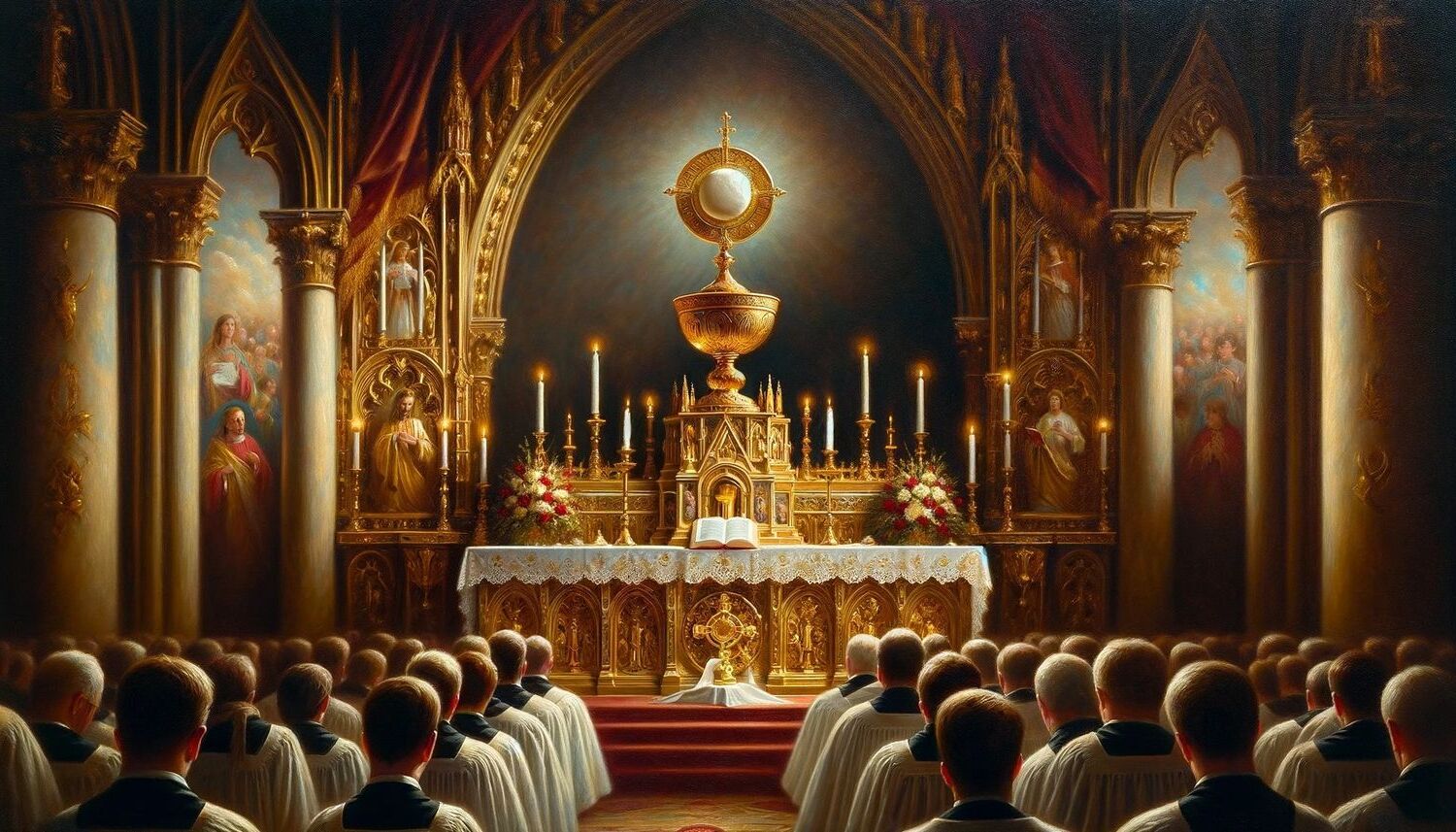
What are sacraments? Sacraments are sacred rituals in Christianity that signify divine grace. They are seen as outward signs of inward grace, instituted by Christ. Different denominations recognize various sacraments, but the most common ones include Baptism, Eucharist, and Confirmation. These rituals mark important spiritual milestones and are essential for a believer's faith journey. They serve as a bridge between the divine and the human, offering a tangible way to experience God's presence. Understanding sacraments can deepen one's faith and provide a richer spiritual life. Ready to learn more? Let's dive into 30 fascinating facts about these holy rituals!
What Are Sacraments?
Sacraments are sacred rituals in Christianity that signify divine grace. They are seen as outward signs of inward grace, instituted by Christ. Let's dive into some fascinating facts about sacraments.
-
Sacraments in Christianity: Most Christian denominations recognize sacraments, though the number and nature vary. Catholics have seven, while many Protestant denominations recognize two.
-
Seven Sacraments of Catholicism: These include Baptism, Confirmation, Eucharist, Penance, Anointing of the Sick, Holy Orders, and Matrimony.
-
Baptism: This sacrament marks the entry into the Christian community. It involves water, symbolizing purification and rebirth.
-
Confirmation: Confirmation strengthens the grace received at Baptism. It often involves anointing with chrism oil and the laying on of hands.
-
Eucharist: Also known as Communion, the Eucharist commemorates the Last Supper. Bread and wine are consecrated and consumed, symbolizing the body and blood of Christ.
-
Penance: Also called Reconciliation or Confession, this sacrament involves confessing sins to a priest and receiving absolution.
-
Anointing of the Sick: This sacrament offers grace for the ill or elderly. It includes anointing with oil and prayers for healing and comfort.
-
Holy Orders: This sacrament ordains individuals into the clergy. It includes three degrees: deacon, priest, and bishop.
-
Matrimony: Matrimony sanctifies the union between a man and a woman. It symbolizes Christ's relationship with the Church.
Historical Background of Sacraments
Understanding the history of sacraments can provide deeper insight into their significance and evolution over time.
-
Early Church Practices: In the early Christian Church, sacraments were less formalized. Practices varied widely among communities.
-
Council of Trent: The Council of Trent (1545-1563) played a crucial role in defining the seven sacraments for the Catholic Church.
-
Protestant Reformation: The Reformation led to significant changes in sacramental theology. Martin Luther emphasized Baptism and Eucharist, rejecting the other five.
-
Eastern Orthodox Church: The Eastern Orthodox Church also recognizes seven sacraments but refers to them as "Holy Mysteries."
-
Medieval Developments: During the Middle Ages, the theology and practice of sacraments became more standardized and elaborate.
Symbolism and Rituals
Sacraments are rich in symbolism and ritual, each element holding deep meaning.
-
Water in Baptism: Water symbolizes cleansing and rebirth. It is a powerful symbol of new life in Christ.
-
Oil in Confirmation: Chrism oil represents the Holy Spirit. Anointing with oil signifies being set apart and strengthened by the Spirit.
-
Bread and Wine in Eucharist: Bread and wine are central to the Eucharist. They symbolize Christ's body and blood, offering spiritual nourishment.
-
Confession in Penance: Confession involves admitting sins to a priest. It symbolizes humility, repentance, and the desire for reconciliation with God.
-
Laying on of Hands: This gesture is used in several sacraments, symbolizing the transfer of grace and the Holy Spirit.
-
Marriage Vows: Vows exchanged in Matrimony symbolize the couple's commitment to each other and to God.
Sacraments Across Denominations
Different Christian denominations have unique perspectives and practices related to sacraments.
-
Anglican Communion: Anglicans recognize two sacraments (Baptism and Eucharist) as necessary for salvation but also acknowledge five other rites.
-
Lutheran Church: Lutherans emphasize Baptism and Eucharist, viewing them as means of grace instituted by Christ.
-
Methodist Church: Methodists also recognize Baptism and Eucharist, focusing on their role in conveying God's grace.
-
Reformed Tradition: Reformed churches, including Presbyterians, recognize two sacraments. They emphasize the symbolic nature of the rituals.
-
Pentecostal Churches: Pentecostals practice Baptism and Communion but often place a strong emphasis on personal spiritual experiences.
Modern Perspectives on Sacraments
In contemporary Christianity, sacraments continue to hold significant spiritual and communal value.
-
Ecumenical Movements: Efforts to promote unity among Christian denominations have led to greater dialogue and understanding about sacraments.
-
Interfaith Marriages: In cases of interfaith marriages, the sacrament of Matrimony can involve special considerations and adaptations.
-
Online Sacraments: The COVID-19 pandemic prompted discussions about the validity of online sacraments, particularly for Eucharist and Confession.
-
Youth Participation: Many churches encourage youth participation in sacraments, such as Confirmation, to foster spiritual growth.
-
Cultural Adaptations: Sacramental practices can vary widely across cultures, reflecting local traditions and customs.
Final Thoughts on Sacraments
Sacraments hold a special place in many religious traditions. They serve as symbols of faith, commitment, and community. Whether it's baptism, confirmation, or marriage, each sacrament carries its own unique significance. These rituals often mark important life stages and spiritual milestones. They bring people together, fostering a sense of belonging and shared belief. Understanding the meaning and history behind sacraments can deepen one's appreciation for their role in religious life. So next time you witness or participate in a sacrament, remember the rich traditions and profound meanings behind these sacred acts. They’re more than just rituals; they’re a testament to the enduring power of faith and community.
Was this page helpful?
Our commitment to delivering trustworthy and engaging content is at the heart of what we do. Each fact on our site is contributed by real users like you, bringing a wealth of diverse insights and information. To ensure the highest standards of accuracy and reliability, our dedicated editors meticulously review each submission. This process guarantees that the facts we share are not only fascinating but also credible. Trust in our commitment to quality and authenticity as you explore and learn with us.


